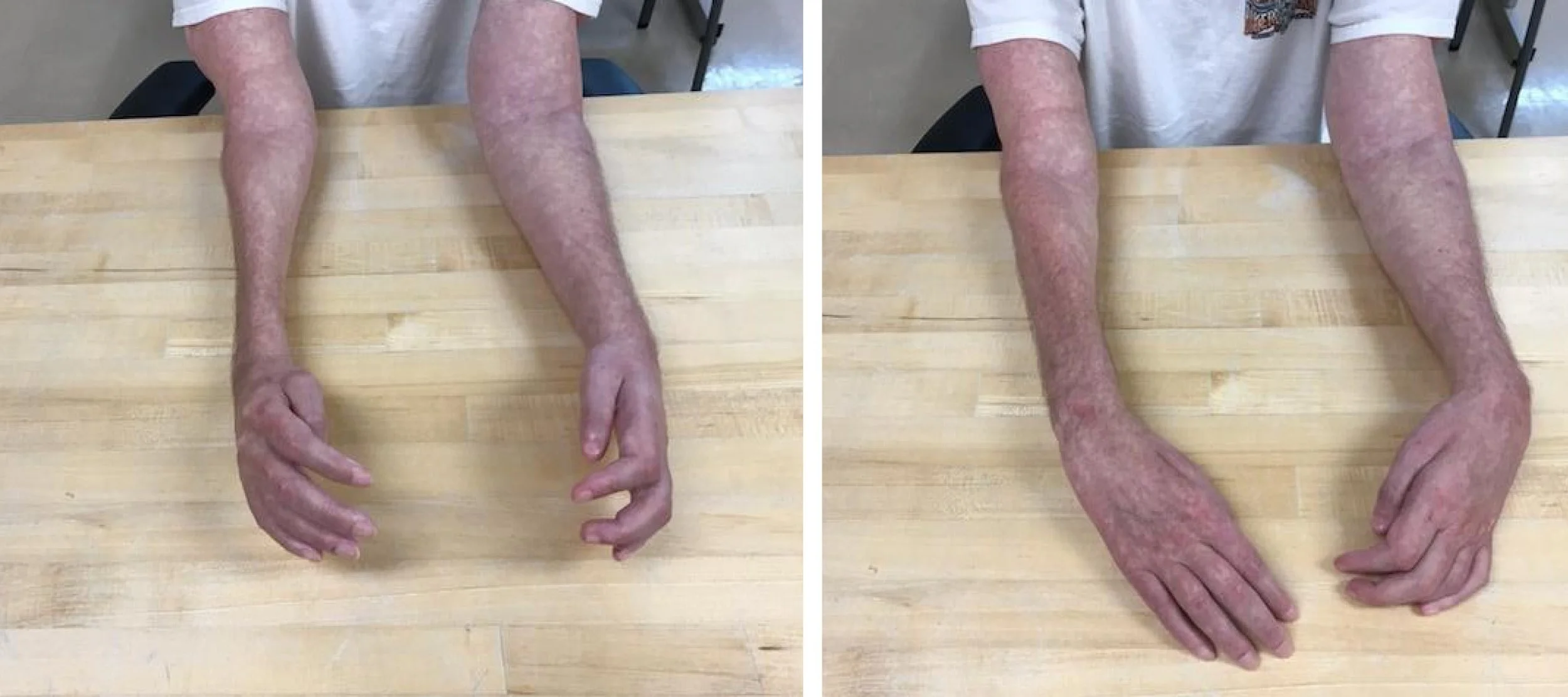Home > Hand/Arm Transplant > Definition
A hand/arm transplant means that a hand or upper limb from a deceased donor is surgically attached to a person with upper limb loss. Hand/arm transplants are a kind of vascularized composite allograft (VCA), meaning a type of transplant that includes skin, muscle, bone, blood vessels, nerves, and/or tissues as a unit.¹

Purpose of Hand/Arm Transplantation
- A hand/arm transplant is performed to restore the motor functions and sensations of a person’s hand and to improve a person’s quality of life.2 For example, the transplant may restore a person’s ability to grasp objects, feel hot and cold, hold hands, write, type, play sports or music, and do many other activities of daily life.
- Other potential benefits of a hand/arm transplant include improvements in a person’s appearance, balance when walking, and social integration.3,4
- Hand/arm transplantation is not life-saving, but it can be “life-enhancing” because it can improve quality of life. However, there are risks involved with hand/arm transplantation, including medication side effects and the chance that the transplant will not function as expected.5
Click Below for More Videos
Videos of Health Care Professionals
References
Sources
ASSH position statement on hand transplantation 2013. J Hand Surg Am. 2013;38(11):2234-2235.
Salminger S, Roche A, Sturma A, et al. Hand Transplantation versus Hand Prosthetics: pros and cons. Current Surgery Reports. 2016;4(2):8.
Jensen SE, Butt Z, Heinemann AW, et al. Perceptions of the Risks and Benefits of Upper Limb Transplantation Among Individuals with Upper Limb Amputations. Plastic and Reconstructive Surgery 2014;134(5):979-987.
Major MJ, Stine RS, Shirvaikar T, et al. Effects of Upper Limb Loss or Absence and Prosthesis Use on Postural Control of Standing Balance. Am J Phys Med Rehab 2020; 99: 366-371.
Breidenbach WC. Hand Transplantation. Med J Aust. 2013;199(4):228-229.

